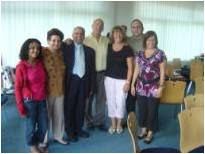Germany has a rich and varied culinary Christmas tradition, as well as a huge selection of festive foods making coming up with a definitive list a tricky task. But here, plucked from typical German Christmas fare, are the essential tastes you are likely to encounter.
Grünkohl – kale Held in high regard across the country, kale is likely to accompany whatever slab of Christmas meat is put on the table. The kale gets minced and then cooked in stock with cream, spices and random meat or sausages for a few days. Even though it might sound odd, a whole culture has formed around these healthy greens across the country. You’ll find that everyone has their own secret spice mix to make their kale stew a specialty. Just ask any Oma and she'll swear that the process of reheating the kale gives it its characteristic flavor and texture.
Knacker – bangers Those who have turned their nose up at Grünkohl might find this dish more appealing. In some parts of Germany the traditional Christmas Eve victuals are very basic sausages and potato salad. This all-time German favorite can be enjoyed with a variety of sausages such as Wiener, Bockwurst, or Knacker, which is a smoked, raw sausage, which is a bit like like raw bangers.
Karpfen – carp If your hosts dish up a big fish it is very likely to be carp. Don’t be reserved when it comes to this downmarket fish. While carp is viewed unfavorably in America, its firm, low-fat meat is valued in Germany. The flavor is usually mild, but some people insist that the farm raised variety can have a “muddy” taste. However, carp can often be reminiscent of tasty catfish too.
Gänsebraten – roast goose You can’t live without roasted poultry on Christmas? Well Germans like their holiday bird too. Traditionally eaten with dumplings, red cabbage and the aforementioned kale stew, roast goose might even be the most popular holiday dish in Germany. One benefit is that you avoid the dreaded “dry-turkey” since goose stays juicy simply because it’s higher in fat.
Lebkuchen – German gingerbread Don’t fear if you now think of the rock hard Lebkuchen Herzen (gingerbread hearts) inscribed with icing you didn’t think were actually edible when visiting the Oktoberfest this year. No, this traditional spicy-sweet gingerbread cake is somewhat soft and comes in every shape and taste your heart desires. It is also known as Pfefferkuchen (pepper cake) or Honigkuchen (honey cake), depending on the used ingredients.
Spekulatius This is a spicy Christmas cookie. The biscuit is very thin, crunchy, slightly browned and has some image or figure stamped on the front before baking, while the back. Imagine some kind of slimmed down, spiced up version of shortcake.
Stollen – fruit cake This stodgy fruit cake might look familiar when served up. The heavy, dense, yeasty dough may appear to be solid enough to build a house out of it, but is actually quite low in sugar. Stollen contain all sorts of Christmas goodness such as marzipan, almonds, dried fruit, butter and, last not least a thick sugar coating. Even though small Stollen are available these days, the traditional weight used to be a whopping two kilogrammes!
Marzipankartoffeln – marzipan potatoes You might have noticed already that the German sweet tooth loves marzipan, but Marzipan Kartoffeln are the real deal. They're just what their name suggests. Potato shaped lumps of marzipan dusted with coco and some cinnamon for that freshly harvested spud look. Those sugary little things can only be found in the shops during the holiday season and might pick you up after a boozy and lardy evening. If that doesn’t work, start from the top of our list again and see if another cup of Glühwein does the trick...










